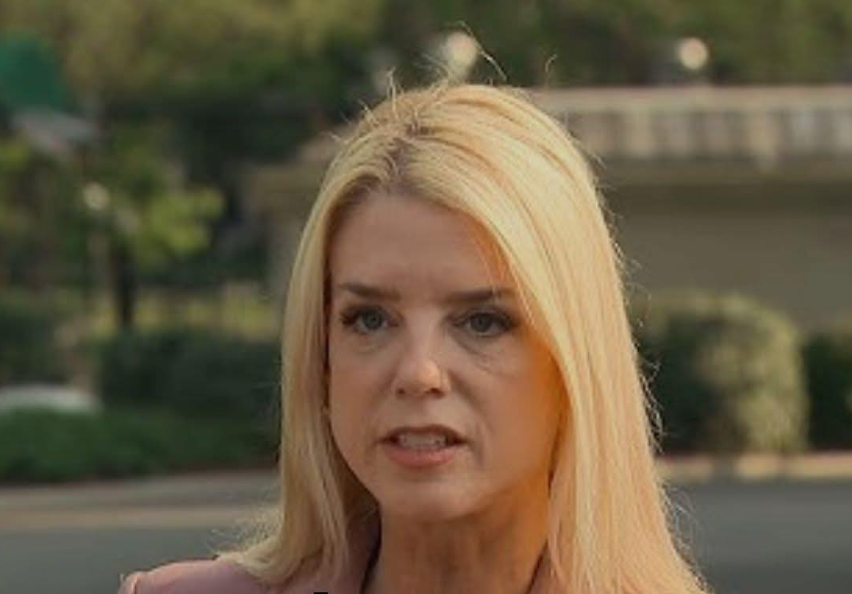Federal court filings and newly released documents are now painting a far darker and more complex picture of the situation than anyone in her district—or even many political observers outside it—had imagined. What initially appeared to be the meteoric rise of a determined and scrappy outsider, someone who managed to navigate the rough waters of politics with surprising agility, now seems to have been underpinned by a far more intricate and troubling series of actions. Legal filings suggest that diverted pandemic relief money may have been funneled, whether knowingly or indirectly, into political operations designed to strengthen her electoral position.
Furthermore, a pattern of carefully orchestrated communications, selective disclosure, and perhaps even deliberate obfuscation appears to have concealed these maneuvers from the public eye, raising troubling questions about the internal culture of her campaign and advisory team. With each newly disclosed affidavit, subpoenaed memo, and witness statement, more questions emerge about who was aware of the alleged conduct, when knowledge of it arose, and how deep the misconduct may run within her inner circle of advisers, consultants, and long-trusted political allies.
Taken in aggregate, the criminal charges, overlapping ethics inquiries, and the mounting state-level disputes paint a portrait of converging legal, political, and regulatory risk that would challenge even the most seasoned public official. For a relatively new member of Congress, this confluence of scrutiny could be career-defining, and not in a favorable sense. The indictment specifically centers on whether federal emergency pandemic relief funds—resources explicitly earmarked to stabilize communities devastated by unprecedented economic and public health crises—were instead diverted or repurposed to support her narrow electoral objectives.
If the allegations are substantiated in court, they would not merely be a personal failing; they would highlight structural weaknesses in oversight mechanisms governing rapid-response federal spending and the vulnerability of emergency programs to political exploitation.
Beyond the legal and procedural dimensions, the case also exposes the often-blurred line between personal financial interests, political fundraising, and public service obligations. In this instance, a family-owned enterprise occupies a central place in her financial life, creating a potential conflict of interest that could be exacerbated by campaign strategy decisions. Emails, contracts, and financial disclosures currently under scrutiny appear to document instances in which company resources, personnel, or strategic input were connected—either directly or indirectly—to her public office or electoral ambitions.
This entanglement magnifies both the ethical stakes and the potential legal consequences. Observers note that even well-intentioned actions can acquire a veneer of impropriety when private and public interests are so closely aligned, and this is precisely what prosecutors and ethics reviewers are now dissecting in painstaking detail.
As the case progresses, court proceedings, ethics reviews, and regulatory actions will each play a crucial role in determining which allegations are substantiated, which are exaggerated, and which are dismissed entirely. Legal experts emphasize that federal indictments are only one step in a multi-layered process that includes investigative hearings, deposition testimony, and, potentially, protracted litigation. Simultaneously, state agencies are exploring whether separate but related actions violated campaign finance or public trust statutes, creating a patchwork of accountability mechanisms that could intersect in unpredictable ways.
For her constituents, these overlapping investigations may be both confusing and deeply concerning, as the ultimate consequences for public policy and community services hang in the balance.
Regardless of how the legal process unfolds, the broader implications of this episode are likely to reverberate well beyond her district. Political analysts predict that the scrutiny surrounding this case will intensify calls for reform: stricter transparency rules, more robust auditing protocols, and enhanced guardrails for both pandemic relief programs and political fundraising operations. Advocates for government accountability point to this case as a stark reminder that rapid-response programs, designed to deliver aid efficiently during emergencies, can become vulnerable when oversight is lax or when personal ambition eclipses public duty. Meanwhile, ethics watchdogs argue that members of Congress and other elected officials must maintain rigorous separation between private business interests and public office to safeguard public trust and prevent the appearance—or reality—of impropriety.
Even the media coverage reflects the gravity and complexity of the matter. Reporters are parsing hundreds of pages of court filings, cross-referencing financial disclosures, campaign contributions, and communications logs to construct a clear timeline of events. Each revelation appears to spark a new wave of questions: who authorized particular expenditures, how were funds accounted for, and were advisers or family members acting with full transparency? These inquiries are crucial not only for determining culpability but also for educating the public about the potential pitfalls that exist when oversight fails or when personal interests intersect with official duties.
In sum, what began as the story of a rising political figure navigating the challenges of a demanding district has evolved into a high-stakes case encompassing federal criminal allegations, state-level disputes, and complex ethical considerations. The unfolding investigation underscores how swiftly public trust can be tested, how easily financial resources intended for vulnerable populations can be misappropriated, and how closely intertwined private and public interests can become in the modern political landscape. Whether the legal outcomes vindicate her, result in penalties, or precipitate broader reforms, the episode will almost certainly serve as a cautionary tale for legislators, regulators, and the public alike, reinforcing the need for vigilance, transparency, and accountability in all aspects of governance.
